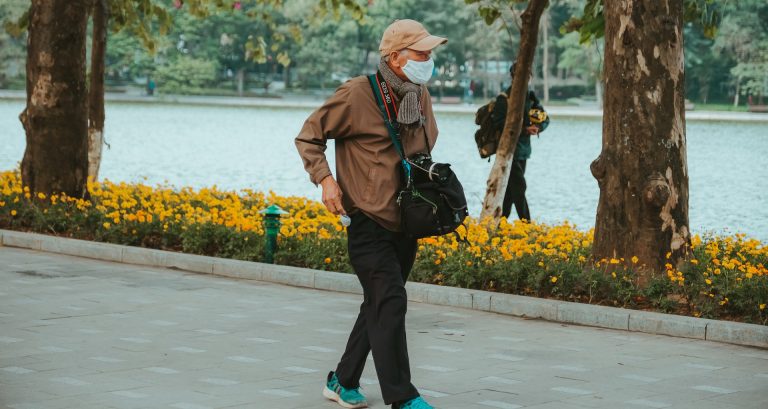The project, funded by the Fonds de recherche du Québec – Santé, Plateforme de financements de la recherche intersectorielle sur le vieillissement, launched in January 2020. It was created by panellist Janis Timm-Bottos, associate professor in the Department of Creative Arts Therapies, to connect Concordia students and researchers with Montreal’s community of older adults. Initially housed at the Cavendish Mall in the municipality of Côte-Saint-Luc, the activities moved online due to the pandemic.
Dorion, a 76-year-old resident of the borough of Outremont, says one of the major characteristics of engAGE activities is the welcoming atmosphere.
“You feel the spirit of community, of exchange and openness.”
Dorion is a multimedia artist and painter. Through workshops with engAGE, she learned how to use a digital exhibition platform and held a virtual exhibition of her paintings alongside other engAGE participants.
The digital skills she learned with engAGE also supported Dorion through a personal tragedy. During her mother’s final moments before passing away in December 2020, Dorion was able to be at her side — virtually.
“I found myself on an iPad, listening to her breaths,” Dorion says. “If I hadn’t had the training with engAGE, I would have missed that moment.”
An ‘ism’ that affects us all
Hebblethwaite adds that, unfortunately, most of us will experience ageism at some point, according to research. She says interdisciplinary collaboration is key to understanding and supporting the aging process.
“Aging is not a homogenous experience. Interdisciplinary research contributes to action that acknowledges the multifaceted experiences of aging and helps to create innovative approaches to working collaboratively with older people to foster meaningful and sustainable change.”
Register for COVID-19, Aging and Well-being: One Year Later, taking place online from 10 a.m. to 12 p.m. on April 12.
Learn more about engAGE: Centre for Research on Aging.

 Mixed media artwork by Marguerite Dorion.
Mixed media artwork by Marguerite Dorion.


